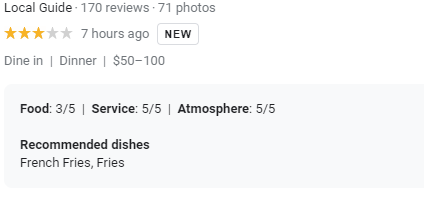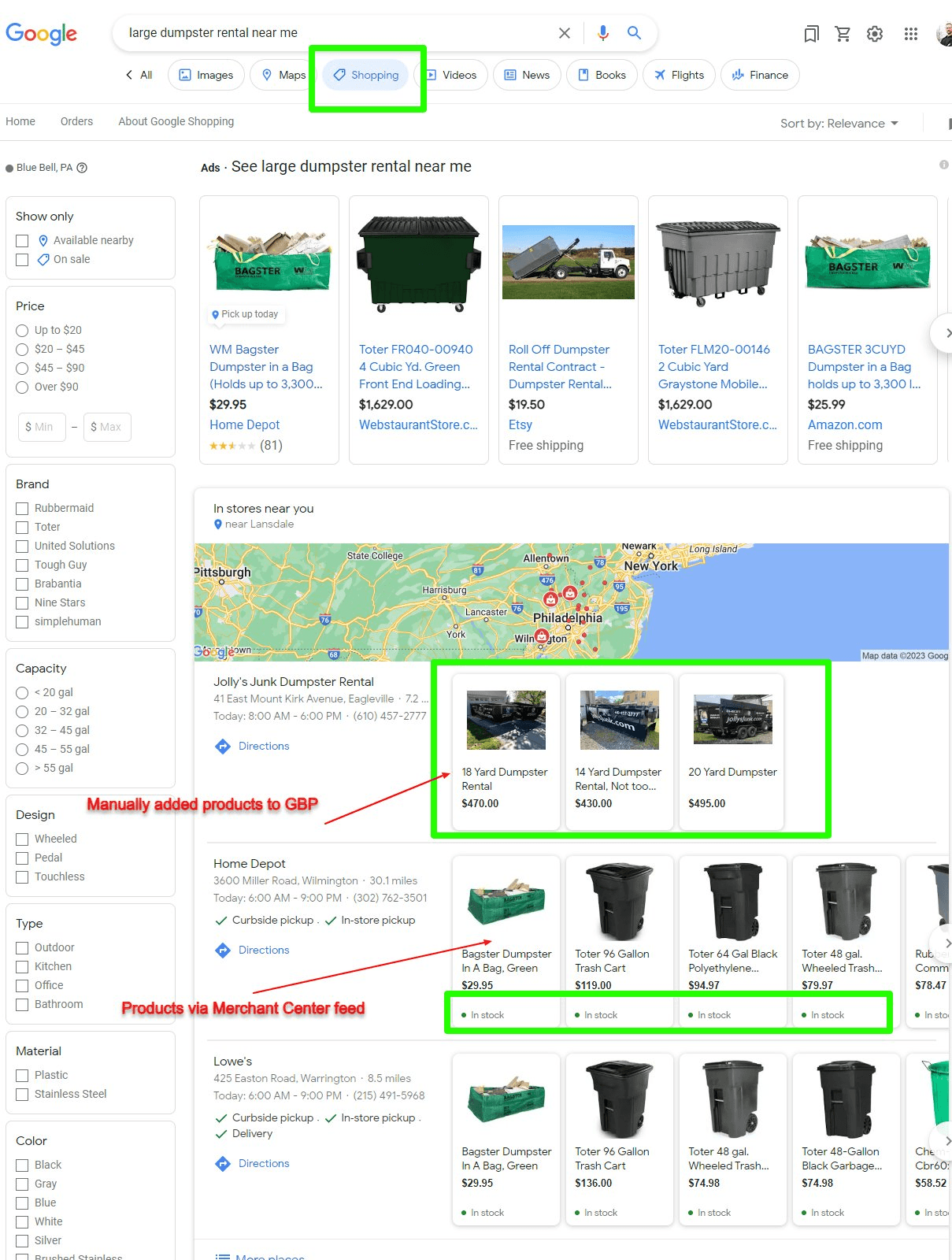Local Memo: Multi-Modal GPT-4 Is Coming in March

Local Memo: Multi-Modal GPT-4 Is Coming in March
In this week’s update, learn about the imminent launch of GPT-4; ChatGPT for local SEO; Google Maps’ new content guidelines; reasons Google might reject a photo update; recommended dishes in reviews; Google’s updated desktop interface; 70 new business types in Local Service Ads; GBP products in Google Shopping; and Meta’s Twitter-like project.
Multi-Modal GPT-4 Is Coming in March
Microsoft has announced the imminent release of GPT-4, the latest update to OpenAI’s generative AI technology, which is expected to go live in mid-March – meaning we may see the update this week. The new iteration is said to be multi-modal, or capable of working in several media. GPT releases thus far — such as GPT-3.5, utilized by ChatGPT and Bing — have been text-only, so GPT-4 may represent a significant leap forward in capabilities and uses. News reports suggest that the new release will be capable of working with text, images, sound, and video. GPT-4 will also reportedly work in multiple languages, and will be able to respond, for instance, in Italian to a question asked in German.
ChatGPT for Local SEO
Tom Demers offers several ideas about local SEO tasks that could be improved by utilizing ChatGPT. In one instance, he shows the results of using ChatGPT to research the Google categories selected by competitor businesses, finding that the results informative but not always accurate. Some other ideas are to use ChatGPT to write copy for Google Posts; to ask it to list some commonly asked questions in preparation to film an FAQ video; and to use the tool to script the video itself. Demers also tries out ChatGPT for product descriptions and answering Google questions. In subsequent sections of the article, Demers explores using ChatGPT for review management, sentiment analysis, and review response; for various onsite SEO tasks like blog post ideation, schema markup, and differentiated content for location pages; and for generating link-building opportunities in local communities.
For most of the local SEO tasks Demers explores, ChatGPT provided helpful feedback but could not be relied upon to supply usable content without oversight.
Google Maps Updates Content Guidelines
Google has updated its Maps policies on user contributed content to provide expanded detail on the protection of private information. The new policy states that merchants cannot share anyone’s personal information without express permission. Photos, videos, and people’s names are all protected as is identifiable information such as medical records. The only persons not subject to this rule are professionals associated with the business or any “public-facing professional conducting business under their name.”
In addition, the updated policy has a new clause in its section on fake engagement. In addition to forbidding incentives for reviews and other restrictions, the policy now states that businesses cannot post content “using an emulator or other device tampering service, modified operating system, or other method to mimic genuine engagement, manipulate sensor data or results, or otherwise thwart or confuse normal operations.”
Reasons Google Might Reject GBP Photos
Darren Shaw has shared six reasons why Google might reject photo updates in Google Business Profiles, with content taken from Mike Blumenthal’s responses in the GBP help forum. Here’s a quick recap:
- A bug can cause photos to show as rejected, but they actually publish 24-48 hours later.
- Profiles less than 2 weeks old cannot publish any images.
- Google checks for duplicate, watermarked, and copyrighted images, and will reject those it finds.
- Photos can be rejected if text covers more than 10% of the photo.
- Google’ image recognition software may flag images as inappropriate, correctly or incorrectly.
If photos are rejected incorrectly, merchants can reach out to Google support or ask for help in the forum.
Google Adds Recommended Dishes to Reviews
Now that Google is prompting reviewers to share structured information about their experiences, in particular with restaurants, users have begun spotting this feedback in published reviews. In particular, Claudia Tomina shared on Twitter a restaurant review section that showcases recommended dishes, presumably culled from reviews with structured content.

Courtesy Claudia Tomina / Search Engine Roundtable
Google Launches Updated Desktop Interface
Google is rolling out a new design for desktop search, matching the mobile interface update that was launched last October. Search results on desktop will now display a favicon and site name, helping users to identify the source for each link. Sponsored content is also supposed to be marked more clearly as a result of the update.
Google automatically creates site names by analyzing a site’s content and references to it on other sites. Though you can’t change the site name Google assigns, you can influence it by implementing WebSite structured data.
70 New Business Types Added to Local Service Ads
Google has announced support in Local Service Ads for 70 new service providers in 5 categories: education, people care, pet care, wellness, and healthcare. Examples of newly supported businesses include beauty schools, preschools, funeral homes, animal shelters, pet groomers, veterinarians, personal trainers, and dentists. Local Service Ads allow supported businesses to promote themselves in sponsored placements for local searches related to their offerings, and compensate to some degree for the difficulty service-oriented businesses encounter when trying to rank well in organic local searches.
Google Showing GBP Products in Shopping Results
Users are spotting examples of product listings in Google Shopping results that are derived from manually added listings in the Products menu of Google Business Profiles. These product listings appear alongside those from other businesses that are sourced from Merchant Center feeds. Previously, Merchant Center product listings could appear in Google local results if the business was running Local Inventory Ads, but this is the first time we’ve seen organic product listings pushed in the other direction from GBP to Shopping.

Courtesy Colan Nielsen / Search Engine Roundtable
Meta May Launch an Alternative to Twitter
In addition to trialing its own paid subscription service in the wake of Twitter Blue, Meta may now be planning the launch of a Twitter competitor that is reportedly decentralized, similar to Mastodon or Twitter founder Jack Dorsey’s Bluesky. The new app, which has the codename P92, was confirmed by Meta to be in development, with the company stating that it is exploring a “standalone decentralized social network for sharing text updates.” The initiative is being led by Adam Mosseri, the current head of Instagram. As a decentralized platform, the app will presumably be distributed across multiple servers with different user groups able to exert some level of control over their communities.




